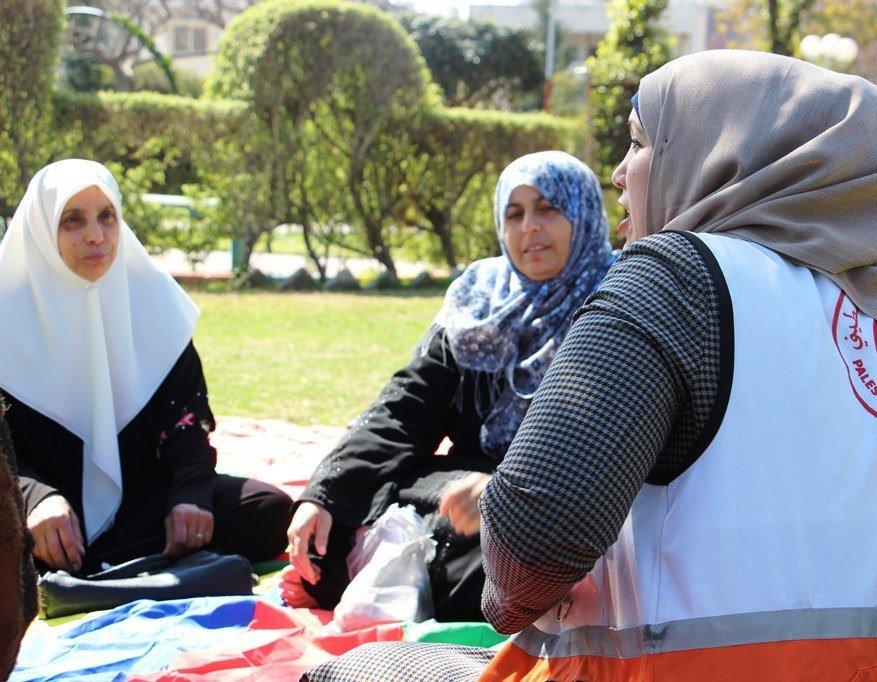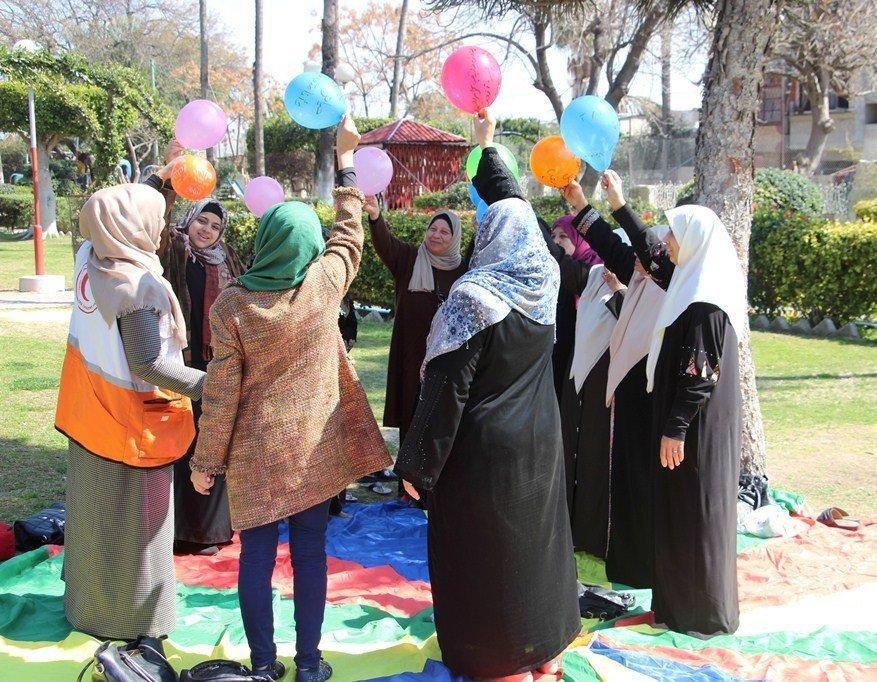
By: Raed Al Nims
When I heard that Palestine Red Crescent Society (PRCS) has a support group for cancer patients and their families, I thought the story I was going to write would only reflect their sadness. But it turns out I was completely wrong.
In a public garden in Gaza City, social worker Hidaya Hammad sat with about ten women, all of them living with cancer. They were talking, laughing, and seemed to be at ease. The meeting was organized by the Psychosocial Support Department at PRCS as part of a cancer support program. When I approached this group of women I immediately noticed that they looked happy. Nothing about them gave away that they had a serious illness. They were playing ball, painting with balloons, and talking. Each one of them would take the floor to speak about her battle with cancer and how these sessions helped her and allayed her pain.

Rania Fadel (42) said: “I used to refuse to leave the house. I would cry all the time and was very nervous and tense. I used to pick fights with my husband and children. However, once I joined this support group, I calmed down thanks to the help I received from psychologists who taught me how to overcome my despair, pain and frustration. My relationship with my husband and children also improved”.
Khalida Hussein (57) said: “I became ill several years ago which caused me a lot of distress. I used to look at my children and think that my life was soon over. However, these days, I no longer feel ill. I went back to playing with my kids and my sadness gave way to happiness. All this happened thanks to advice I received during these sessions which I now look forward to”.
Hidaya, the social worker, described these session as follows: “These sessions are held as part of a cancer support group, which is open to cancer patients and their families. They offer advice on how to deal with issues relating to being sick and how to address the psychosocial consequences of this illness, including stress, nervousness, frustration and isolation".
.jpg)
Hidya added:"We work with a specialized and highly trained team which determines needs and holds weekly meetings with these women. During these sessions, women talk about their experiences and how they overcame cancer-related challenges. They also receive advice on how to overcome difficulties and change their attitudes. This is done through relaxation techniques, games, stress relief exercises, outreach activities and continuous support. Group members are now less stressed and can better cope with their condition. They are calmer at home and enjoy a better relationship with their spouses and children”.
Rima Mahmoud (26) said: “A few years ago, my five-year old son was diagnosed with cancer. This negatively affected my marriage. I became aggressive towards my son, husband and neighbours. I let myself go and stopped smiling altogether. Moreover, I started having these severe migraines. However, when I joined this group and started implementing the advice I received, my life changed. My relationship with my son, husband and neighbours has improved. I have realized that there are millions of cancer patients around the world who lead normal lives without feeling despair. Honestly, these sessions made my life and my son’s life go back to normal”.
End.